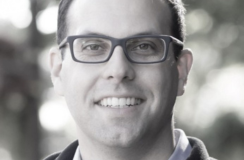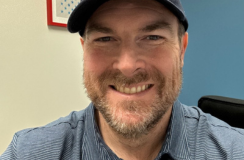henmark is an admired business among acquisition entrepreneurs. The company was founded by brothers James & Palmer Higgins and James’ wife Trish, and the trio did their first acquisition in September 2015.
From the outset, Chenmark’s founding thesis was twofold:
- There was a great financial opportunity to acquire, hold, and grow small businesses over the long term.
- Building a holdco to pursue this opportunity would be more interesting and personally rewarding than corporate jobs on Wall Street (where they’d all spent time).
Seven years after that first acquisition, the thesis is stronger than ever.
As of January 2020, Chenmark has 450 employees across 7 platform businesses and has completed ~30 acquisitions.
In this episode of Acquiring Minds, James and Palmer talk about what they’ve built so far.
We discuss how the three co-founder’s extreme “delayed gratification muscle” is core to their vision and success; what characteristics an entrepreneur should have to pursue a path similar to Chenmark’s; lessons the team has learned (and re-learned); and much more.
This is a longish episode, but for any acquisition entrepreneur aspiring to build a holding company (holdco), this episode is full of hard-won wisdom from one of the most purposeful teams doing it.
Check out:
✳️ About James & Palmer Higgins
✳️ Top takeaways from the episode
✳️ Episode highlights with timestamps
Acquisition Entrepreneur: James & Palmer Higgins
💵 What they acquired: James, Palmer, and third co-founder Trish (who was not in this interview) have acquired 7 platform businesses since 2015: 3 in landscaping, 1 in lawn care, a food manufacturer, a tourism company, and a paint retailer. In addition to these, there have been many tuck-ins, putting their total acquisition number at around 30.
💡 Key quotes:
“The tricky thing about trying to build a holding company that owns a lot of small businesses is the first thing you need to do is move to Maine and buy a snowplowing business, and run that for a while, and make sure that goes well. And then maybe if you're lucky you got an opportunity to buy another one.” — James Higgins
"If you view [people] as problems, then you're probably not in the right business. If you view them as opportunities and on balance, you realize that the positives far away the negatives, then I think you're in a good spot." — Palmer Higgins
👋 Where to find them: LinkedIn: James Higgins, Palmer Higgins
Acquisition Tips From the Episode
Top takeaways from this conversation
💪 Superpower: Delayed Gratification Muscle
In some ways the idea of buying small businesses, which can be acquired so affordably, seems obvious. Especially to James and Palmer’s peers on Wall Street who study business valuation on a daily basis. Why then do so few of them pursue this path?
Answer: a lack of patience.
Core to Chenmark’s thesis is holding the businesses for the long term, which will allow for compounding to kick in.
Anyone familiar with the power of compounding (“the eighth wonder of the world”) understands this, but the trick is that it takes years for the effect to be realized; only in the out-years does the trend line shoot up and to the right.
The co-founders of Chenmark all have what Palmer characterizes as “a pretty unique and extreme delayed gratification muscle.”
The more you develop your own such muscle, the more able you’ll be to harness compounding in your acquisition.
🧠 Your Brain on Wall Street vs. Your Brain on Small Business
James acknowledges that the rigorous intellectual challenges found on Wall Street are not found in small business.
But make no mistake: you actually use more of your brain running small businesses than you do building Excel models at a bulge bracket investment bank.
James characterizes the contrast as one of depth versus breadth.
“I can sit on a bond trading desk and be a complete expert at reading credit agreements, understanding kind of covenant structures or whatever it happens to be,” he explains.
“But I may never have the opportunity to have to fire someone, have to hire someone, have to build out a marketing program, acquire another company, negotiate a price with a customer, any of these types of things.”
Those are daily occurrences in small business, and they are absolutely intellectually stimulating. Just not as strictly cerebral as the problems you encounter sitting behind a desk on Wall Street.
🧍 People are Opportunities Not Problems
One of the things entrepreneurs who acquire service businesses often dread is the extent to which all such businesses are people businesses.
The problems you encounter running a small service business are often management and personnel related, and this can be a foreign and jarring reality for people more accustomed to working behind a screen or in a structured corporate environment.
But this reality should be embraced, says Palmer, not resisted.
"People are the single greatest point of leverage that you can have as an individual... And nothing is accomplished by yourself. Nothing big, at least. So if you view [peopel] as problems, then you're probably not in the right business. If you view them as opportunities and on balance, you realize that the positives far away the negatives, then I think you're in a good spot."
Episode Highlights
Inflection points from the show
[2:30] Individual backgrounds on both James and Palmer.
[4:30] The founding story of Chenmark: the investing component and the personal philosophy.
[7:02] What differentiates the Chenmark founders such that they would pursue this vision. Their core values. The delayed gratification muscle.
[10:30] Intellectual stimulation in fancy corporate jobs on Wall Street versus running small businesses.
[14:47] Profile of Chenmark today. The 7 businesses it owns. ~450 employees.
[16:30] Their most recent acquisition, paint retailer Benjamin Moore in Kelowna, British Columbia.
[19:46] How their founding thesis is holding up 7 years later.
[24:25] What differentiates Chenmark from local small business buyers who have existed forever.
[28:09] Understanding that equity incentives don’t work according to traditional finance rules in small business, getting comfortable with imperfect information, and other rookie errors from when they first started.
[34:00] The arrogance of what Chenmark does.
[37:33] Chenmark’s generalist vice president (GVP) program to build a bench of management talent.
[40:24] What the ideal candidate for the GVP program looks like.
[45:00] Why Palmer went from working at Chenmark proper to being CEO of one of the portfolio companies, Mainely Grass.
[46:37] How competition within search has evolved over the last 5 years.
[49:53] Their thoughts on what size business an acquisition entrepreneur should buy.
[51:40] Earning the right to take risk.
[55:00] Chenmark’s philosophy on diversification and why they acquire businesses across different industries.
[57:27] How acquisition strategies often overlook the human element of combining cultures & companies.
[1:00:08] Chenmark’s long-term time horizon affords them the luxury to enter new industries and take their time to deeply understand them.
[1:01:30] The advantage of the operating and capital allocation functions being integrated at Chenmark.
[1:05:55] What type of person should pursue something similar to what Chenmark is doing?
[1:12:40] People are the single greatest point of leverage. If you view people as problems instead of opportunities, this path probably isn’t for you.
Links & Mentions
✅ Chenmark
✅ Chenmark’s Weekly Thoughts note














%20-%20thumbnail.png)






%20-%20thumbnail.png)



%20-%20thumbnail.png)

.png)




%20-%20thumbnail.png)















%20-%20thumbnail.png)



























































